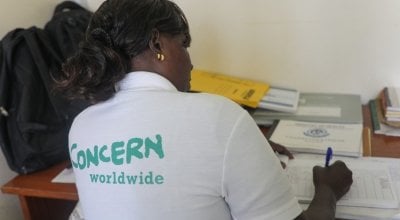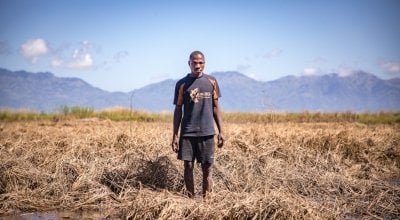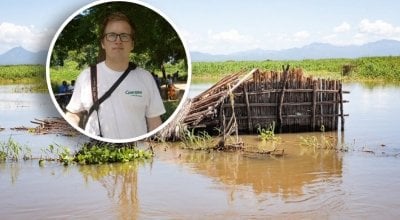
Read our 2023 annual report

Knowledge Hub
Deadly floods in Malawi
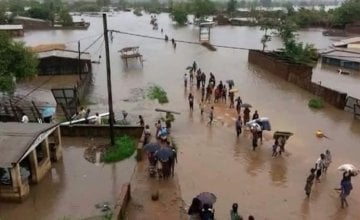
Serious floods have devastated Malawi over the last month, flooding so widespread that the government has declared half of the country to be in a state of disaster.
There has been extensive damage to crops. Floods have washed away livestock and caused significant damage to roads and bridges.
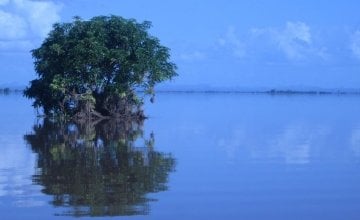
Concern’s response
Concern Worldwide is currently assessing needs in the hardest hit Nsanje district.
We are supporting local authorities with the registration of families in evacuation centres and with the transportation and distribution of basic household items.
Stewart Gee, Concern’s acting assistant country director for programs in Malawi, said that many people are stranded and stuck on the tops of trees and rooftops.
"People evacuated with nothing, just the clothes on their backs... The biggest issue is food," he told us."
"There are many people who haven’t eaten in a few days and are also severely dehydrated."
Start funding
With support from the Start Fund we will be increasing our response to support more than 49,000 people over the next 45 days.
This support will include the distribution of food and basic emergency kits including blankets, kitchen utensils, soap, water purification tablets, plastic sheeting and tarpaulin.
We will also be constructing latrines and showers, and working to reduce the risk of the spread of diseases, including diarrhoea and cholera.
Eyewitness account
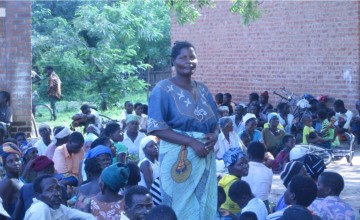
Eunice Makitchansi lives in the Nsanje district with her six children. When she noticed that the water levels around her home were unsually high she became anxious.
She said: "Whilst I was discussing plans with my husband about abandoning the house and going to Khulubvi (which is on a slightly higher ground than our area), our neighbours came rushing in, telling us that most of the area where we cultivate rice and the villages closer to that particular area were almost completely submerged by water.
Fleeing floods in canoes
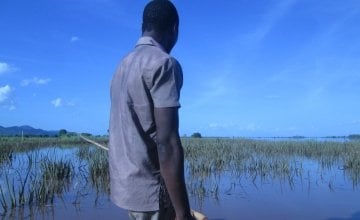
Connex, Eunice’s eldest son, called their relatives at Khulubvi to organise canoes for safe travel.
Her youngest children and the elderly were allocated canoes first.
During Eunice’s three hour wait for her own canoe, the water rose steadily, eventually sweeping away their 6 goats, 10 ducks, 15 chickens, and destroying all their crops.
"It was late in the afternoon when they came back," Eunice told us.
"By this time things had really become serious, because the water levels had risen waist-deep and I was crying just like most women around. All of our possessions were being carried away by the water."
However, their ordeal wasn’t over yet as Eunice and other villagers fled to Khulubvi by canoe in darkness.
"Almost each canoe had a person holding some sort of lamp to help visibility, and in the background the only thing visible about our village houses were the rooftops.
"The trip seemed to be taking forever because the men were very cautious in their paddling to avoid losing people especially women and children.
"As we were closer to safety, we saw some men trying to hold on to trees and losing their grip and drowning... It was the darkest moment of my life."
Damaged livelihoods
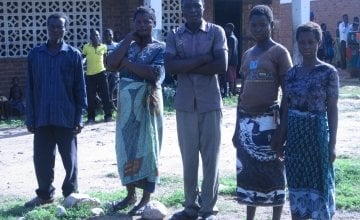
Eunice and her family reached Khulubvi safely and were given shelter in classrooms at the local primary school.
People from the surrounding N’gabu area generously provided food for those seeking refuge in the school. However, many were unable to eat due to grieving and trauma.
"Most people in the rooms were grieving and were too distressed to eat the the food that was provided by people and the Chief of N’gabu area," Eunice explained.
"I had never seen such an amount of calamity in my home area, and I do not know whether I will have the courage to go back even if the water subsides. We have lost our livelihood."



